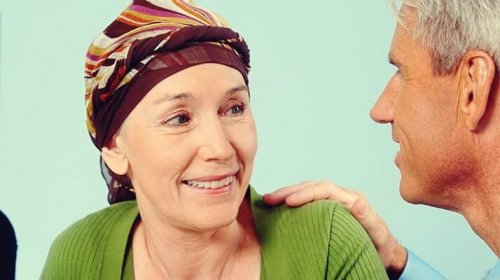Psycho-Oncology to Improve Cancer Patients' Lives


Written and verified by the psychologist Valeria Sabater
Cancer treatment is always evolving and requires a multidisciplinary approach. In addition to biomedical intervention, psychosocial support should be a part of every cancer patient’s treatment plan. Psycho-oncology helps patients and their families improve their quality of life and better manage all the emotions that come with a cancer diagnosis.
The cancer prevention and treatment advances of the last few years are quite encouraging. Nowadays, medical intervention is more personalized. Treatment is more focused on immuno-oncological therapies, which are proving to be superior to more traditional therapies.
That being said, in addition to basic and essential medical interventions, it’s absolutely crucial for all cancer patients to have access to mental health resources that will help them deal with the psychological issues that come with cancer. Consequently, the health care system needs enough mental health professionals who specialize in these areas to mitigate the negative psychological impact of cancer.
But that’s not all. At the same time, physicians and oncologists have to be trained to communicate effectively and correctly. This will help families and patients make the best decisions possible. Likewise, psycho-oncology should focus on prevention.
Society needs people to help others change dangerous habits that can lead to cancer (such as smoking or sun exposure). Any modern and sensible society should make this a priority.

Psycho-Oncology can Help Patients Accept and Overcome their Cancer Diagnosis
Finding out you have cancer can turn your whole life upside-down. It’s a reality no one is prepared for. Add to that a healthcare professional who doesn’t have adequate training and pays more attention to their computer screen than their patient, and you have a recipe for disaster.
When a doctor tells a patient they have cancer, the world seems to stop, and all the patient hears is one word that resonates in their mind: death. Of course, those who have dealt with cancer know that it isn’t necessarily a death sentence. Cancer involves struggling, fighting, and resistance. You have to call on all your inner strength to help you face this new challenge, the same one that thousands and thousands of people deal with every year.
There’s something very important to keep in mind that will help you on your journey: you don’t have to walk it by yourself. You have family, doctors, nurses, and psychologists who will work together to help you through this difficult time.
Who Came Up with Psycho-Oncology?
Psycho-oncology is quite new. In fact, its founder died in 2017, before her work could get the attention it deserved. Jimmie C. Holland was the director of the Department of Psychiatry and Behavioral Sciences of the Memorial Sloan Kettering Cancer Center in New York. She was a great psychologist who was married to an important figure in the oncology world, Dr. James F. Holland. He’s a pioneer in the use of chemotherapy for cancer treatment.
Jimmie Holland noticed the serious lack of knowledge in the medical world about what cancer patients experience emotionally. Doctors had little training in that area. Some even completely failed to report that their patients were suffering from serious depression. Doctor Holland decided to lay the foundation for psycho-oncology and created the American Psychosocial Oncology Society. She also founded the medical journal titled “Psycho-Oncology”.

Thanks to her work, doctors have been able to improve the quality of life of millions of patients. In addition, as studies like the one published in the Journal of Oncology Nursing show, focusing only on the biomedical aspect of cancer is a huge mistake. Even the World Health Organization (WHO) reminds us that good overall health includes good mental health.
Jimmie Holland laid the foundations and defined the mechanisms for a psychosocial focus that would lead to a broader and more holistic cancer treatment.
Purpose of Psycho-Oncology
The Lancet Psychiatry published a study that showed that 25 percent of cancer patients will also develop some kind of emotional disorder. Consequently, providing specialized psychological support in this field could help treat and prevent many conditions.
Let’s see what psycho-oncology is useful for:
- Psycho-oncology helps ease the cancer diagnosis for the patient and their family.
- It also helps the patient play an active role in their treatment by providing strategies at each stage.
- Reduces the impact of side effects that come along with treatment (chemo, radiation therapy, surgical interventions.)
- Helps the patient and their family process potential physical changes during treatment (hair loss, mastectomies, serious surgeries, etc.)
- Provides support and attention to patients’ children, partners, and parents.
- Improves communication between doctors and patients.

In each stage of the illness, the impact of stressors depends on each individual’s traits. Psycho-oncologists are trained and prepared to reduce stress, minimize suffering, and offer valuable strategies that will help their patient overcome each stage in the best possible way.
Psycho-oncology is key for this multidisciplinary approach to cancer. The involvement of mental health professionals helps patients adapt to the illness but also prepares them to face it in the best possible way. In conclusion, psycho-oncological care may potentially improve overall treatment, which may increase the patient’s survival possibilities.
This text is provided for informational purposes only and does not replace consultation with a professional. If in doubt, consult your specialist.








